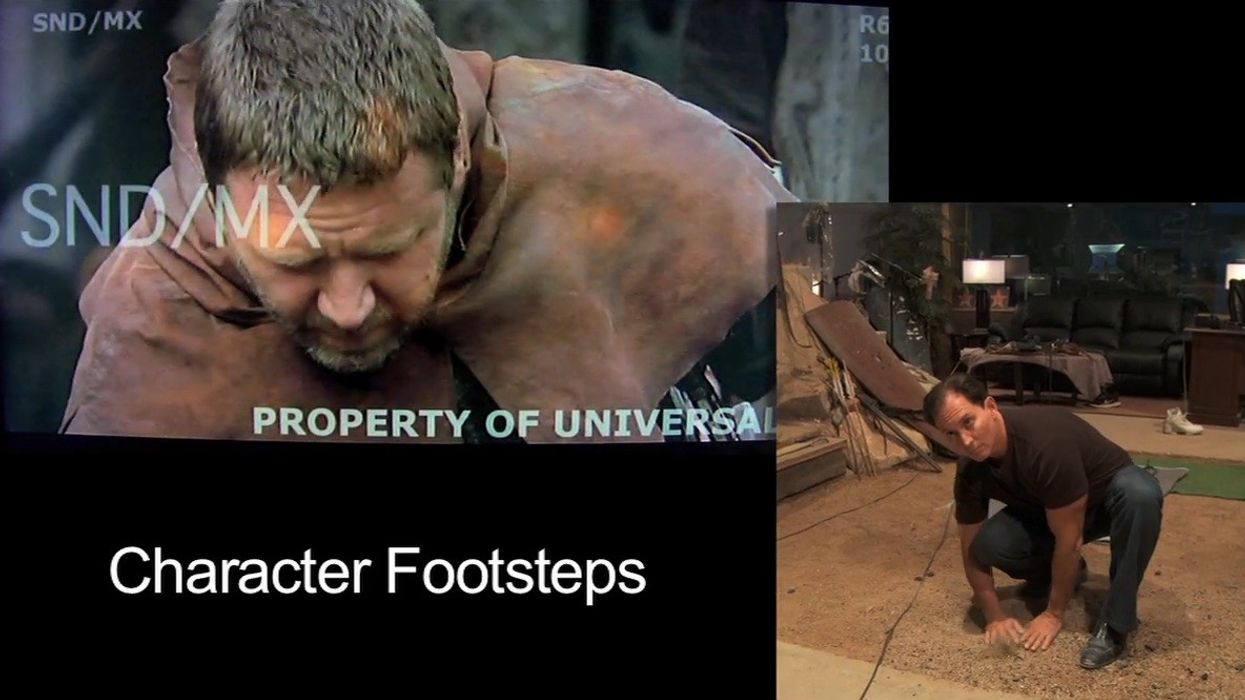What is Foley? Award-Winning Foley Artist Gary Hecker Takes Us Inside The Craft

What is Foley? What does it take to be a Foley Artist? Many of you might be very familiar with the craft, or maybe you have only heard the word in passing, but Foley is one of the many sound elements that helps bring a film together. It's arguably one of the more important parts of sound design, because many of the important sounds that really add to the character of the film are all created in post on a Foley stage. SoundWorks Collection, who has given us quite a few tremendous videos, takes a look at the art of Foley with Gary Hecker, who has worked on films like The Empire Strikes Back and Robin Hood.
Gary Hecker for SoundWorks Collection (thanks to FilmmakerIQ for the link):
From "The Empire Strikes Back" to "Robin Hood", award-winning Foley artist Gary Hecker of Todd-AO says it takes “timing and a huge creative mind” to be the man behind the sound. Here, he shares tips and tricks he’s learned during a career that has spanned more than 200 films.
Hecker also recently joined CSS Studios’ Todd-AO in late 2009. One of the most accomplished Foley artists in Hollywood. Among his recent credits are 2012, The Taking of Pelham 1 2 3, Angel & Demons, Watchmen and the Spiderman trilogy.
I'm often talking about the importance of sound design in my posts about short films, and to me, that's usually one of the factors that separates a good film from a great film (though I don't think sound design can make a bad film into a good film). Getting those small sound details really helps to complete the film, and put you in the moment with the characters. If you're on set, you're usually focused on recording dialogue, since that's one of the hardest things to recreate in post with the same type of energy and performance -- and also make it sound natural.
As Gary shows above, Foley is really an art, and the people that do it are artists just as anyone else involved with a film would be. It's clear that it takes a lot of creative thinking to do this work, as you must be able to problem-solve and think way outside of the box when it comes to creating certain sounds.
What do you guys think? Have you done any Foley work on your own films? How was that process for you?
Link: SoundWorks Collection: Gary Hecker - Veteran Foley Artist -- Vimeo
[via FilmmakerIQ]











